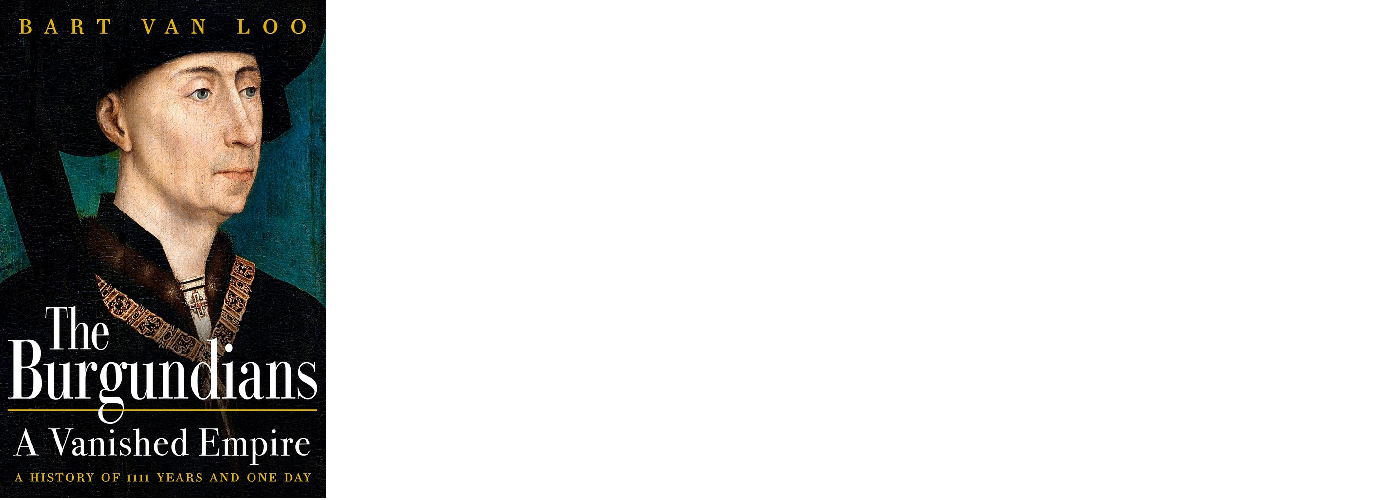Book of the week: The Contrarian by Max Chafkin
Biography challenges the image of Silicon Valley as a hotbed of idealism and progressive liberalism

A free daily email with the biggest news stories of the day – and the best features from TheWeek.com
You are now subscribed
Your newsletter sign-up was successful
Today, most of us associate the word “Burgundy” with the wines produced in eastern France, said Dominic Sandbrook in The Sunday Times. “Yet to anyone familiar with medieval history, the name conjures up one of Europe’s great vanished states” – a territory that, in the 15th century, stretched “from the modern Netherlands to the shores of Lake Geneva”.
Never a kingdom in its own right, the state of Burgundy was an “autonomous grey area, uneasily poised between France, England and the Holy Roman Empire”, ruled by a succession of “strange and flawed” dukes.
In The Burgundians, the Belgian historian Bart Van Loo tells its story in “rollicking” style. A bestseller in Europe, the book opens up a “rich, bustling, blood-soaked world of quays, merchants and money changers, brutal family feuds and magnificent Flemish altarpieces”.
The Week
Escape your echo chamber. Get the facts behind the news, plus analysis from multiple perspectives.

Sign up for The Week's Free Newsletters
From our morning news briefing to a weekly Good News Newsletter, get the best of The Week delivered directly to your inbox.
From our morning news briefing to a weekly Good News Newsletter, get the best of The Week delivered directly to your inbox.
The original Burgundians were a Germanic tribe who established a power base around Dijon in the fifth century, said Paul Lay in The Times. In 1369, the Duke of Burgundy, Philip the Bold, married the daughter of the Count of Flanders – an alliance that brought the prosperous cities of Bruges, Ypres and Ghent under Burgundy’s sway.
Over the century that followed, Philip and his heirs – John the Fearless, Philip the Good and Charles the Bold – were “some of the most powerful men in Europe”, said Tim Smith-Laing in The Daily Telegraph. Key players in the Hundred Years’ War, they were rulers with a taste for the “spectacular” whose “patronage of men like Jan van Eyck helped usher in a golden age of Northern European art”.
Van Loo is their ideal chronicler – a spirited writer equally interested in food and poetry, “battles and politicking”. His book “shines a very welcome spotlight” on a “sadly neglected” dynasty.
Apollo 624pp £30; The Week Bookshop £23.99 (incl p&p)
A free daily email with the biggest news stories of the day – and the best features from TheWeek.com

The Week Bookshop
To order this title or any other book in print, visit theweekbookshop.co.uk, or speak to a bookseller on 020-3176 3835. Opening times: Monday to Saturday 9am-5.30pm and Sunday 10am-4pm.
-
 Colbert, CBS spar over FCC and Talarico interview
Colbert, CBS spar over FCC and Talarico interviewSpeed Read The late night host said CBS pulled his interview with Democratic Texas state representative James Talarico over new FCC rules about political interviews
-
 The Week contest: AI bellyaching
The Week contest: AI bellyachingPuzzles and Quizzes
-
 Political cartoons for February 18
Political cartoons for February 18Cartoons Wednesday’s political cartoons include the DOW, human replacement, and more
-
 6 exquisite homes with vast acreage
6 exquisite homes with vast acreageFeature Featuring an off-the-grid contemporary home in New Mexico and lakefront farmhouse in Massachusetts
-
 Film reviews: ‘Wuthering Heights,’ ‘Good Luck, Have Fun, Don’t Die,’ and ‘Sirat’
Film reviews: ‘Wuthering Heights,’ ‘Good Luck, Have Fun, Don’t Die,’ and ‘Sirat’Feature An inconvenient love torments a would-be couple, a gonzo time traveler seeks to save humanity from AI, and a father’s desperate search goes deeply sideways
-
 A thrilling foodie city in northern Japan
A thrilling foodie city in northern JapanThe Week Recommends The food scene here is ‘unspoilt’ and ‘fun’
-
 Tourangelle-style pork with prunes recipe
Tourangelle-style pork with prunes recipeThe Week Recommends This traditional, rustic dish is a French classic
-
 Samurai: a ‘blockbuster’ display of Japan’s legendary warriors
Samurai: a ‘blockbuster’ display of Japan’s legendary warriorsThe Week Recommends British Museum show offers a ‘scintillating journey’ through ‘a world of gore, power and artistic beauty’
-
 BMW iX3: a ‘revolution’ for the German car brand
BMW iX3: a ‘revolution’ for the German car brandThe Week Recommends The electric SUV promises a ‘great balance between ride comfort and driving fun’
-
 Arcadia: Tom Stoppard’s ‘masterpiece’ makes a ‘triumphant’ return
Arcadia: Tom Stoppard’s ‘masterpiece’ makes a ‘triumphant’ returnThe Week Recommends Carrie Cracknell’s revival at the Old Vic ‘grips like a thriller’
-
 My Father’s Shadow: a ‘magically nimble’ love letter to Lagos
My Father’s Shadow: a ‘magically nimble’ love letter to LagosThe Week Recommends Akinola Davies Jr’s touching and ‘tender’ tale of two brothers in 1990s Nigeria